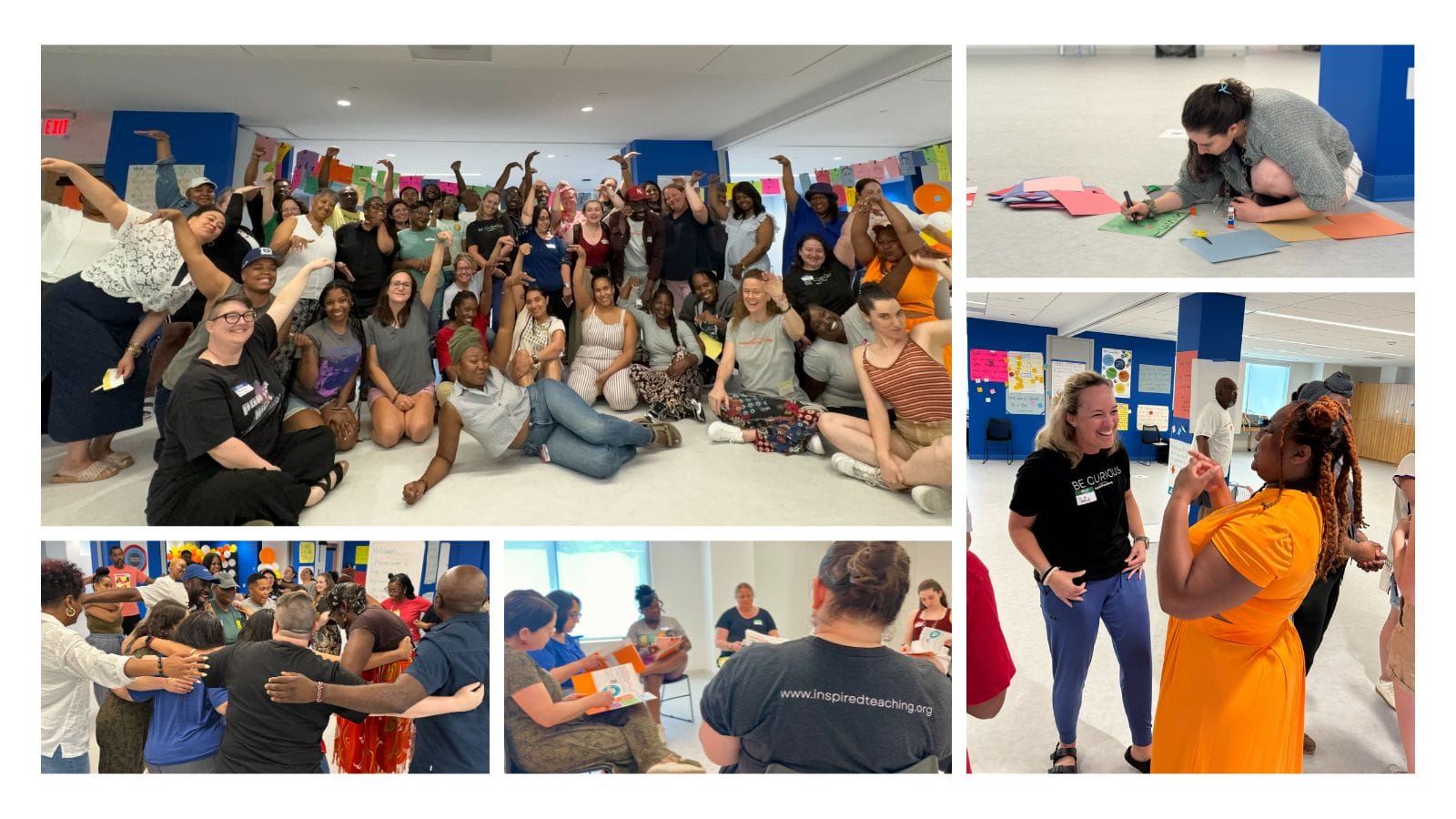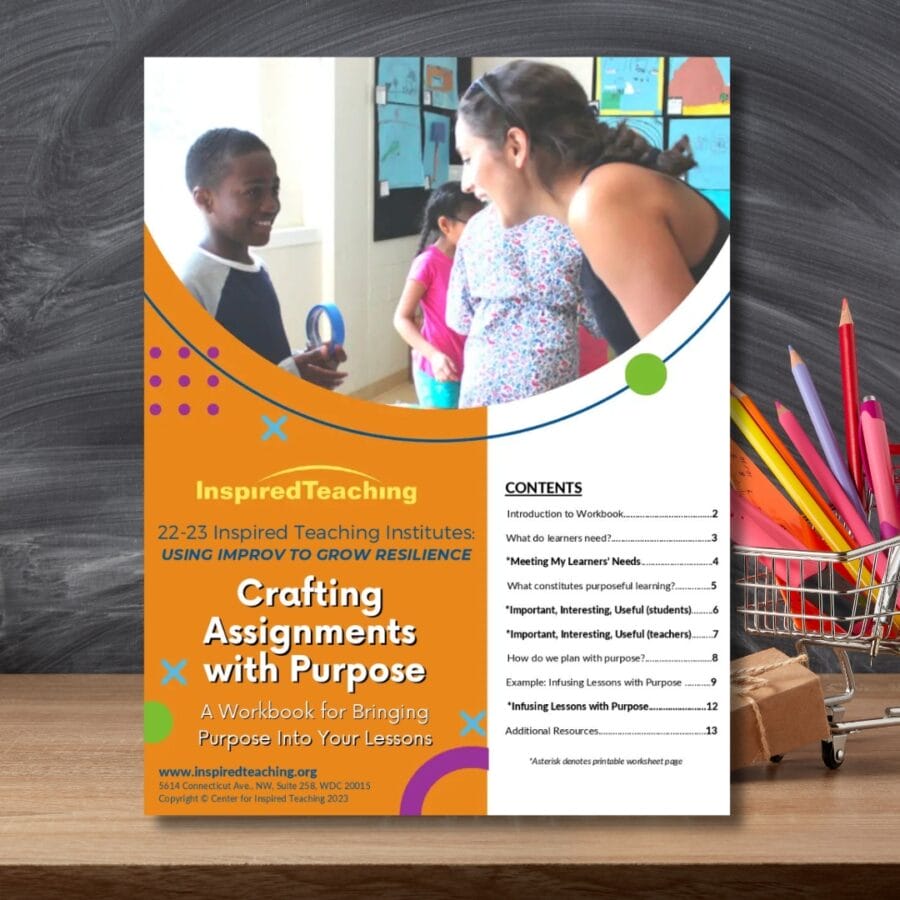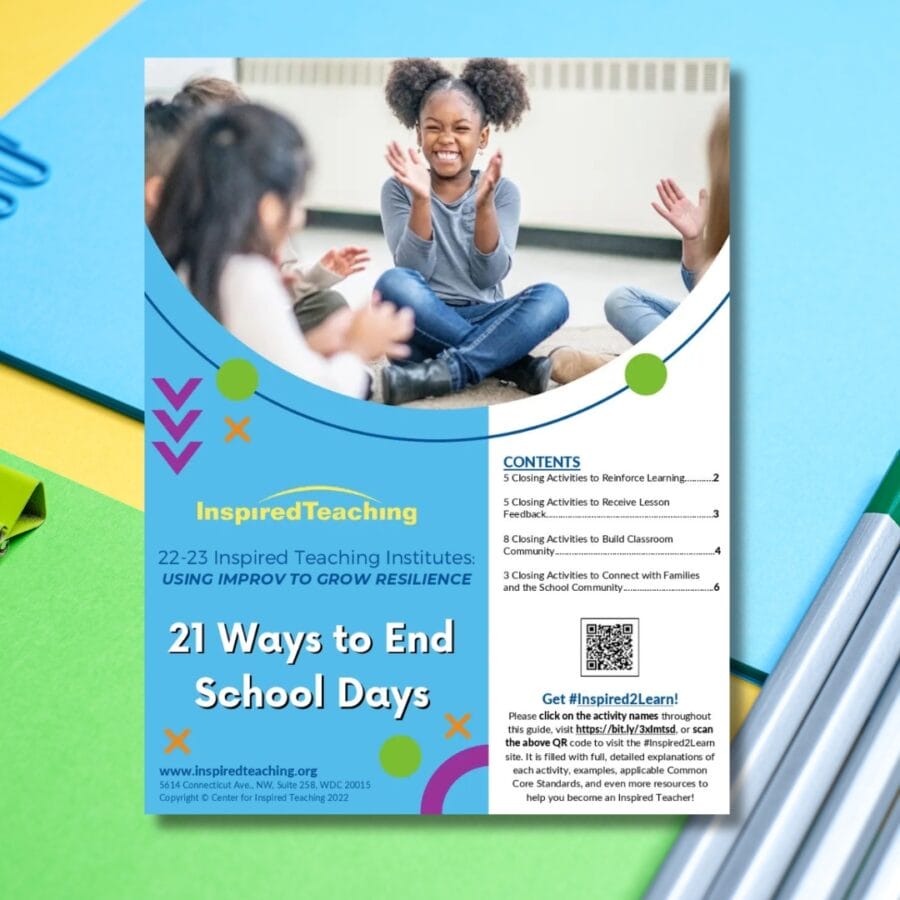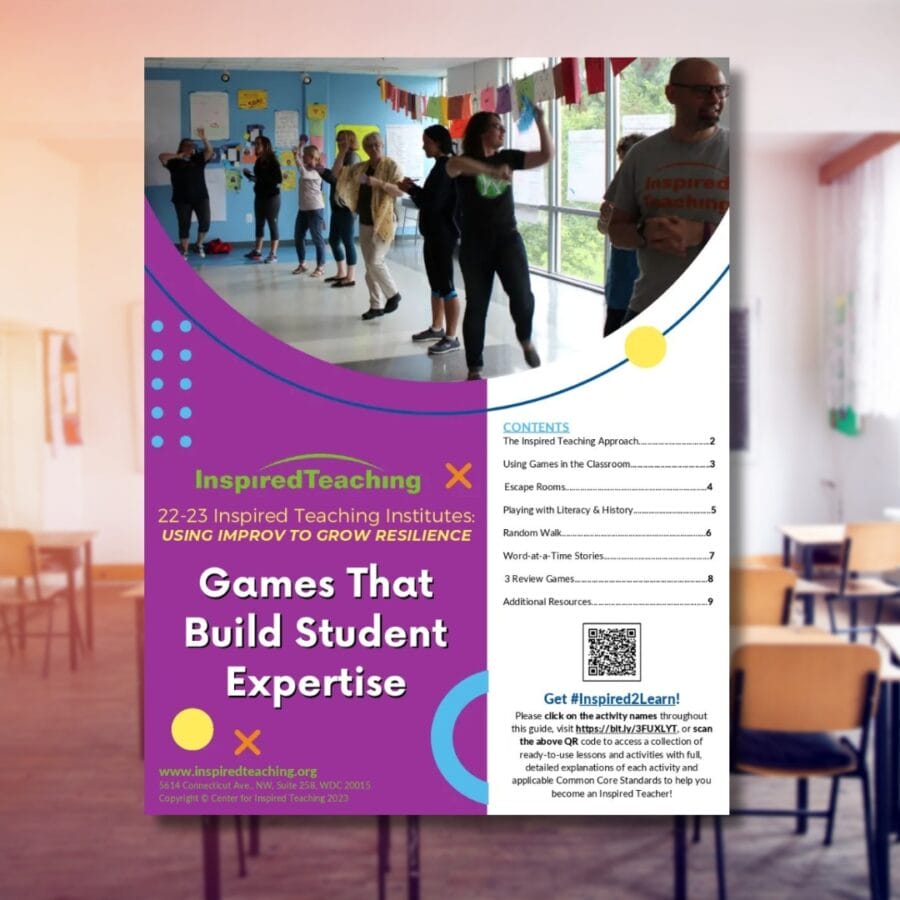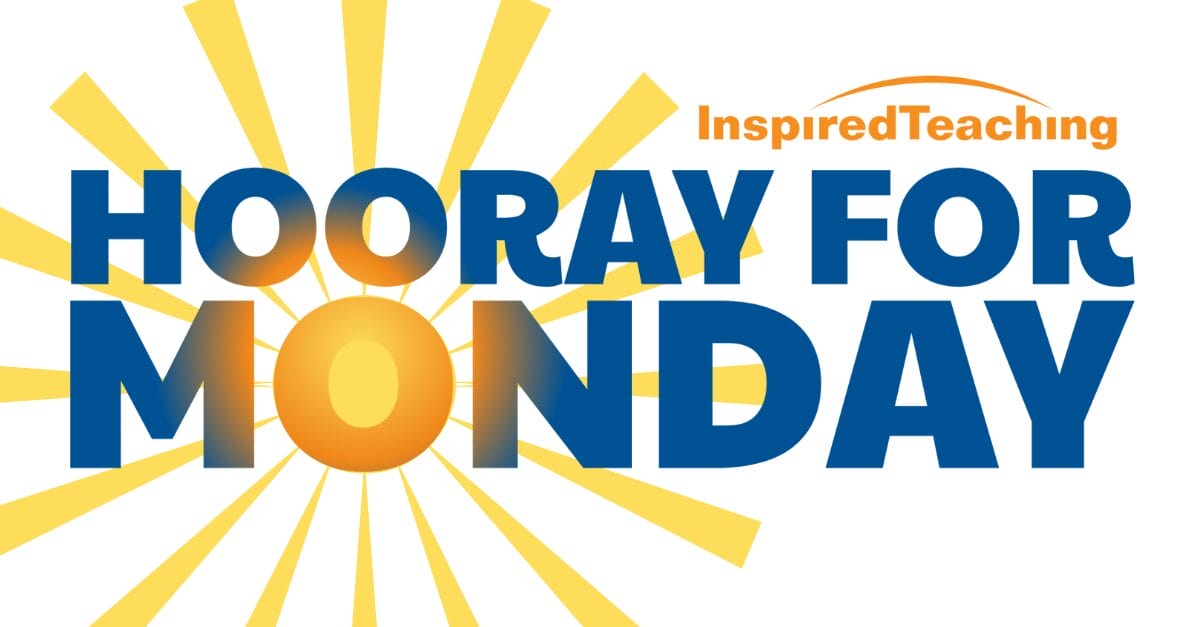Inspired Teaching Institute
Joyful, Interactive, and Engaging Professional Development
Inspired Teaching Institutes are FREE, improvisation-based professional development for teachers and school leaders. They move participants beyond passive professional learning: Inspired Teaching teaches the way people learn best – with our whole selves.
All Institute sessions, both in-person and online, are fully interactive. Online sessions are “cameras on” and “mics unmuted” so participants can get to know and interact with one another. Participants are not going to do a lot of sitting and listening! We encourage you to sign up with colleagues to deepen learning and create space for growing ideas as a community. You are guaranteed to leave these sessions feeling energized and ready to try something new.
Certificates of completion will be provided for all participants. DC Public School teachers get PLUs through the Washington Teachers’ Union for participation.
Stay Up to Date!
All of our Institutes are FREE and are designed to be applicable across the PreK-12 school experience. Participants who attend these sessions will receive certificates of completion. Recordings of webinars and resources will be emailed to all registrants but we highly recommend joining us live so you can experience the activities firsthand, ask questions, and engage with other educators.
Want to stay up to date on upcoming Inspired Teaching professional development opportunities? Sign up at the button below to receive more details on future Institutes!
Inspired Teaching Institute Resource Guides
Standards Addressed
Collaborative for Academic, Social, and Emotional Learning Competencies
Self-Awareness: The abilities to understand one’s own emotions, thoughts, and values and how they influence behavior across contexts. This includes capacities to recognize one’s strengths and limitations with a well-grounded sense of confidence and purpose.
Social awareness: The abilities to understand the perspectives of and empathize with others, including those from diverse backgrounds, cultures, and contexts. This includes the capacities to feel compassion for others, understand broader historical and social norms for behavior in different settings, and recognize family, school, and community resources and supports.
Relationship skills: The abilities to establish and maintain healthy and supportive relationships and to effectively navigate settings with diverse individuals and groups. This includes the capacities to communicate clearly, listen actively, cooperate, work collaboratively to problem solve and negotiate conflict constructively, navigate settings with differing social and cultural demands and opportunities, provide leadership, and seek or offer help when needed.
Common Core College and Career Readiness Anchor Standards for Language
Knowledge of Language:
CCSS.ELA-LITERACY.CCRA.L.3 Apply knowledge of language to understand how language functions in different contexts, to make effective choices for meaning or style, and to comprehend more fully when reading or listening.
Vocabulary Acquisition and Use:
CCSS.ELA-LITERACY.CCRA.L.4 Determine or clarify the meaning of unknown and multiple-meaning words and phrases by using context clues, analyzing meaningful word parts, and consulting general and specialized reference materials, as appropriate.
Common Core College and Career Readiness Anchor Standards for Writing
Text Types and Purposes:
CCSS.ELA-LITERACY.CCRA.W.2 Write informative/explanatory texts to examine and convey complex ideas and information clearly and accurately through the effective selection, organization, and analysis of content.
CCSS.ELA-LITERACY.CCRA.W.3 Write narratives to develop real or imagined experiences or events using effective technique, well-chosen details and well-structured event sequences.
Production and Distribution of Writing:
CCSS.ELA-LITERACY.CCRA.W.6 Use technology, including the Internet, to produce and publish writing and to interact and collaborate with others.
Research to Build and Present Knowledge:
CCSS.ELA-LITERACY.CCRA.W.7 Conduct short as well as more sustained research projects based on focused questions, demonstrating understanding of the subject under investigation.
Range of Writing:
CCSS.ELA-LITERACY.CCRA.W.10 Write routinely over extended time frames (time for research, reflection, and revision) and shorter time frames (a single sitting or a day or two) for a range of tasks, purposes, and audiences.
Common Core College and Career Readiness Anchor Standards for Speaking and Listening
Comprehension and Collaboration:
CCSS.ELA-LITERACY.CCRA.SL.1 Prepare for and participate effectively in a range of conversations and collaborations with diverse partners, building on others’ ideas and expressing their own clearly and persuasively.
Presentation of Knowledge and Ideas:
CCSS.ELA-LITERACY.CCRA.SL.5 Make strategic use of digital media and visual displays of data to express information and enhance understanding of presentations.
CCSS.ELA-LITERACY.CCRA.SL.6 Adapt speech to a variety of contexts and communicative tasks, demonstrating command of formal English when indicated or appropriate.
Common Core College and Career Readiness Anchor Standards for Reading
Key Ideas and Details:
CCSS.ELA-LITERACY.CCRA.R.2 Determine central ideas or themes of a text and analyze their development; summarize the key supporting details and ideas.
Craft and Structure:
CCSS.ELA-LITERACY.CCRA.R.6 Assess how point of view or purpose shapes the content and style of a text.
Integration of Knowledge and Ideas:
CCSS.ELA-LITERACY.CCRA.R.7 Integrate and evaluate content presented in diverse media and formats, including visually and quantitatively, as well as in words.
CCSS.ELA-LITERACY.CCRA.R.9 Analyze how two or more texts address similar themes or topics in order to build knowledge or to compare the approaches the authors take.
College, Career, and Civic Life (C3) Framework for Social Studies State Standards
| Dimension 1: Developing Questions and Planning Inquiries |
|---|
| Developing Questions and Planning Inquiries |
Inspired Teaching was a great recharge for me, and it breathed new life into my curriculum and teaching practice. My most important goal as a teacher has always been getting my students to be the ones doing the thinking, so Inspired Teaching’s Instigator of Thought framework really resonated with me. After Institute, I’ve tried to move away from any type of lecture where students are only sitting and listening, and you can see the results in my class.
